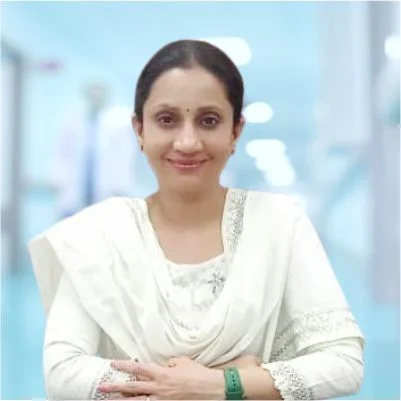The Department of Obstetrics and Gynecology, often referred to as "Obs and Gynae," plays a pivotal role in medical education by imparting knowledge and skills essential for future healthcare professionals. This department is a cornerstone of medical training, equipping students with the expertise and insights necessary to provide comprehensive care to women throughout their lives. Here's an exploration of what the department of Obstetrics and Gynecology at GS Medical College and Hospital covers and its profound relevance in medical education.
1. Core Clinical Skills: Obs and Gynae programs expose medical students to fundamental clinical skills, including history-taking, physical examinations, and patient communication. These skills form the foundation of medical practice and are honed through hands-on experiences in women's health.

2. Reproductive Anatomy and Physiology: Students delve into the intricacies of female reproductive anatomy and physiology. Understanding the menstrual cycle, reproductive hormones, and the female reproductive system is vital for diagnosing and treating various gynecological conditions.
3. Prenatal and Postnatal Care: Obstetrics education covers prenatal care, childbirth, and postnatal care. Medical students learn to monitor pregnancies, manage labor and delivery, and provide postpartum care. These skills are essential for addressing maternal and neonatal health needs.
4. Gynecological Conditions: The department educates students on a wide range of gynecological conditions, from menstrual disorders and infections to benign tumors and cancers. Learning to diagnose and treat these conditions is crucial for future physicians.
5. Family Planning and Contraception: Medical education in obstetrics and gynecology includes family planning and contraceptive methods. Students gain insights into counseling patients on contraception options and family planning decisions.
6. Minimally Invasive Surgery: The department emphasizes the importance of surgical skills, particularly in minimally invasive techniques like laparoscopy and hysteroscopy. These skills are increasingly relevant in modern healthcare due to their reduced invasiveness and faster recovery times.
7. Obstetric Emergencies: Students are trained to recognize and manage obstetric emergencies such as eclampsia, placental abruption, and breech deliveries. Quick and effective responses to these critical situations can save both maternal and fetal lives.
8. Gynecologic Oncology: The department covers gynecologic cancers and their diagnosis and treatment options. Early detection and intervention are vital in improving outcomes for patients with these conditions.
9. Research and Evidence-Based Practice: Obstetrics and gynecology departments often engage students in research opportunities, promoting evidence-based practice. Research in women's health informs advancements in medical care and treatments.
10. Interdisciplinary Collaboration: Medical students in this department learn the importance of interdisciplinary collaboration. Obstetricians and gynecologists work closely with other healthcare professionals, including nurses, radiologists, and oncologists, to provide holistic care.
The Department of Obstetrics and Gynecology at GS Medical College and Hospital offers students diverse clinical exposure, preparing them for a wide array of medical scenarios and enhancing their overall clinical competence. It also teaches them to provide care to women of all ages fosters a patient-centered approach, emphasizing empathy and communication skills. It is an indispensable part of medical education. Its comprehensive curriculum and clinical exposure prepare medical students to become skilled, compassionate, and knowledgeable healthcare professionals capable of addressing the diverse healthcare needs of women across their lifespan.

Director, Professor & HOD